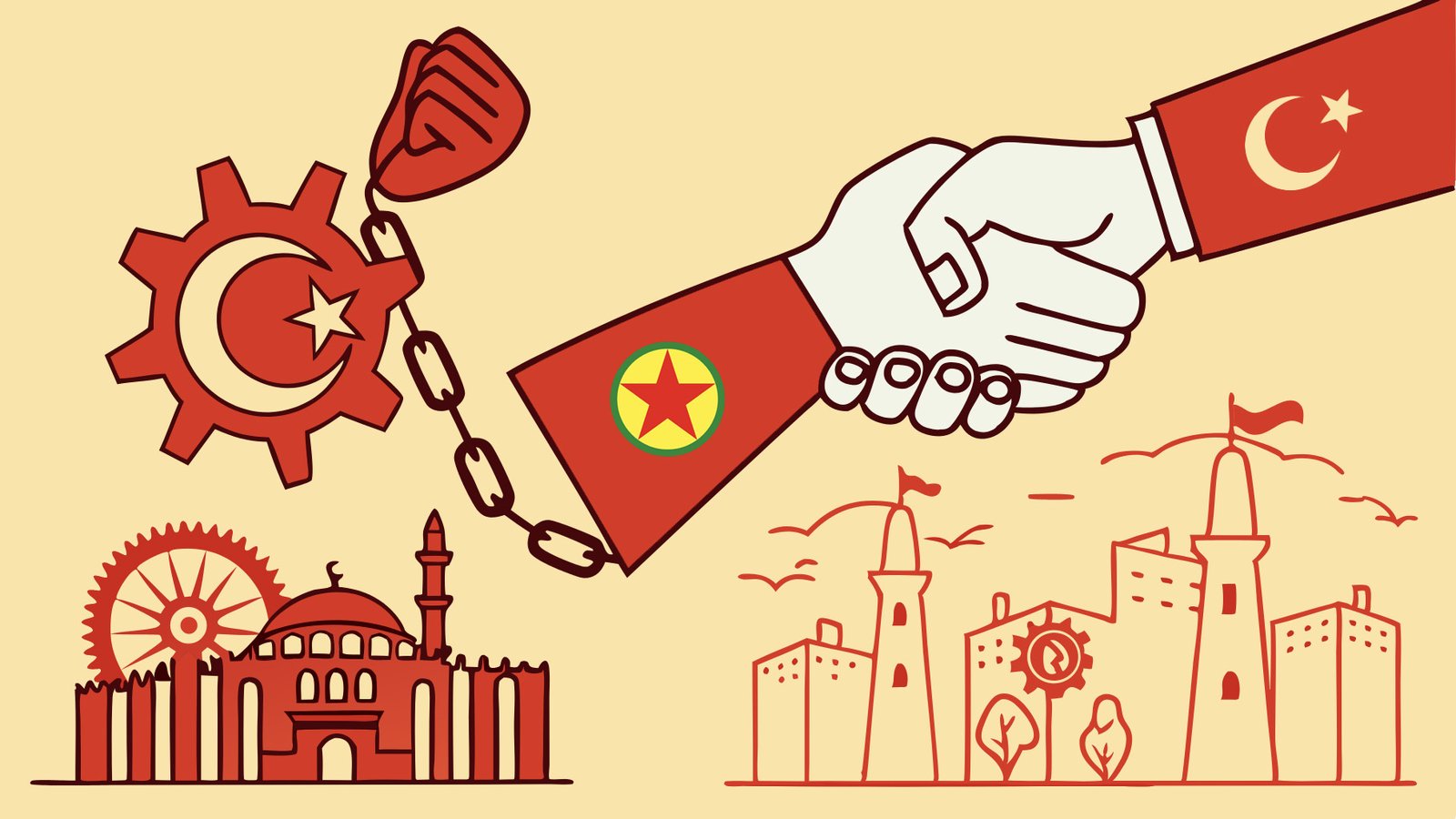Despite PKK “Democratization” Peace Process, Turkey’s Prison Numbers Reach Record High

As the peace process between the PKK and the Turkish state enters advanced stages, the crackdown on dissent has intensified, with prison numbers reaching new highs. From January to September 2025 alone, the prison population increased by nearly 36,000 people, breaking yet another record since the founding of the Turkish Republic a century ago.
Context: The prison population rose by 6,000 in just one month, from August to September, continuing an upward trend. This comes despite the peace process between the PKK and the Turkish state, which is premised on what the PKK’s jailed leader Abdullah Öcalan has described as achievable only through “the existence of a democratic society and political space.”
Turkey – Prison Population
Convicted (Hükümlü)
Pre‑trial / remand (Tutuklu)
Grand total
| Date | Status | Men | Women | Juveniles | Total |
|---|---|---|---|---|---|
| 2025‑09‑01 | Convicted | 339,975 | 15,465 | 1,270 | 356,710 |
| 2025‑09‑01 | Pre‑trial | 55,535 | 3,626 | 3,323 | 62,484 |
| Grand total | 419,194 | ||||
Analysis: While the PKK–Turkish peace process appears to be moving forward—judging by statements from Öcalan, his camp, and the Turkish government—the situation on the ground tells a different story. The newly established parliamentary commission continues to hold weekly meetings on legal reforms meant to underpin the solution process, but the rising prison population suggests a stark contradiction. This matters because the very foundation of Öcalan’s call for PKK disarmament rested on a simple premise: “democratic society and political space.” He has argued that “extreme nationalist deviations—such as a separate nation-state, federalism, administrative autonomy, or cultural solutions—fail to address the historical sociology of society,” insisting instead that only a genuine political space for the Kurdish movement can resolve the issue. His call for disarmament was framed as already part of an understanding with the Turkish state, represented by the AKP–MHP ruling coalition.
Yet key Kurdish leaders in Turkey, such as Selahattin Demirtaş, remain behind bars, despite binding rulings from the European Court of Human Rights ordering their release. Since the start of the year up to September 1, nearly 36,000 more people have been imprisoned, including prominent opposition figures like Ekrem İmamoğlu. How, then, does the peace process continue despite such a clear deterioration of political space?
Turkey – Prison Population Rate
There are two main explanations. First, the legal aspects of the process remain unfinished, requiring new laws to be passed in parliament. Second, the language of democratization may serve as a facade for deeper political understandings between Öcalan and the Turkish state—understandings that could be less about democratization in practice and more about reshaping power-sharing, with the Kurdish movement, through Öcalan, securing its share of the political order.









